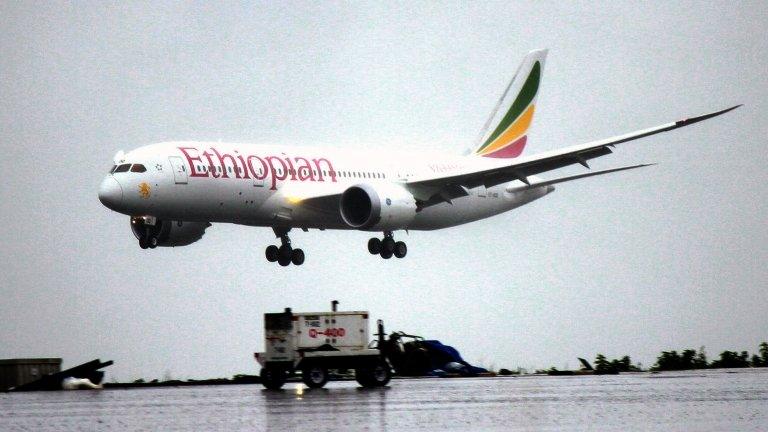Waiting for take-off in West Africa
- Published
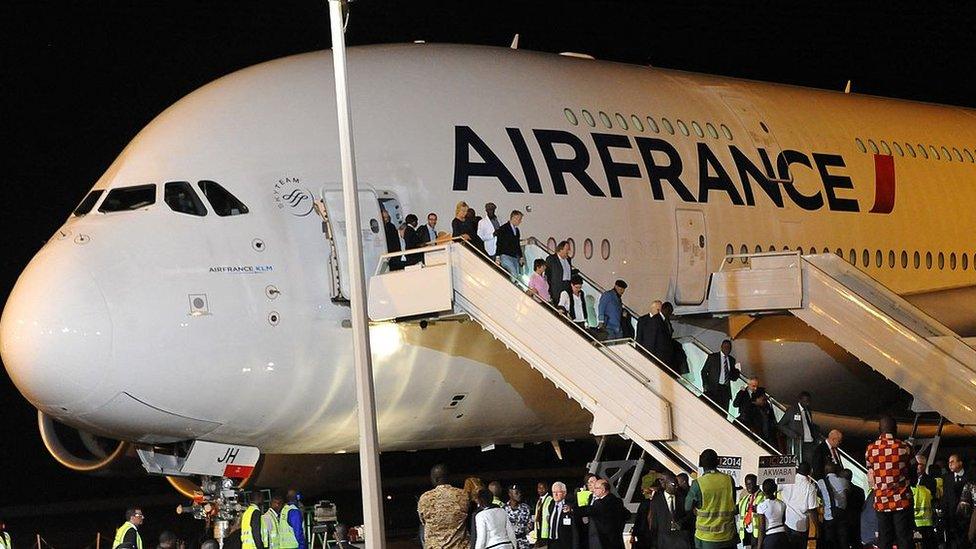
International airlines dominate air travel in West Africa
Flying between the West African capitals of Freetown and Banjul should take about an hour. But as the BBC's Umaru Fofana found out, because of the region's poor air connections, it can be quicker and easier to fly via Morocco or Belgium, although that could take a day, or even three.
I recently had to travel to The Gambia on a reporting trip for the BBC.
In theory, this journey of 700km (400 miles) should take about an hour and The Gambia is a popular tourist destination, which is served by charter flights from across Europe.
But there are just two flights a week from Freetown and the days didn't fit with my trip.

One option would have been to fly with Royal Air Maroc via Casablanca, where there can be a stopover of 30 hours with no automatic entitlement to hotel accommodation.
So it is actually quicker, but far more expensive, to fly to Belgium's capital Brussels and then connect to Banjul.
That "only" takes 24 hours.
Another option would have been with Air Cote D'Ivoire, a relatively new kid on the aviation block.
This would have meant flying via its hub in Abidjan, then to Dakar and onward to Banjul.
However, I would have needed to stay overnight in Abidjan, and possibly another night in Dakar to be able catch Brussels Airlines which is virtually the only reliable means of flying to Banjul from the Senegalese capital.
So a total journey time of about three days.
In the end, the best option was to drive from Freetown to Conakry, before flying to Dakar, Senegal's capital, where I spent the night to get my connecting flight to Banjul the following day.
I spent two days travelling for a trip that should have taken me just over an hour.
My return leg was even more exhausting. I flew from Banjul to Dakar, spent the night and flew on the next evening to Conakry.
I had to spend another night in Guinea's capital before driving to Freetown on the third day.
'Time is money'
In Conakry, I met other travellers who were on different legs of their various journeys around West Africa.
Most of them were businesspeople who complained about the hassle, saying it made travel more expensive.
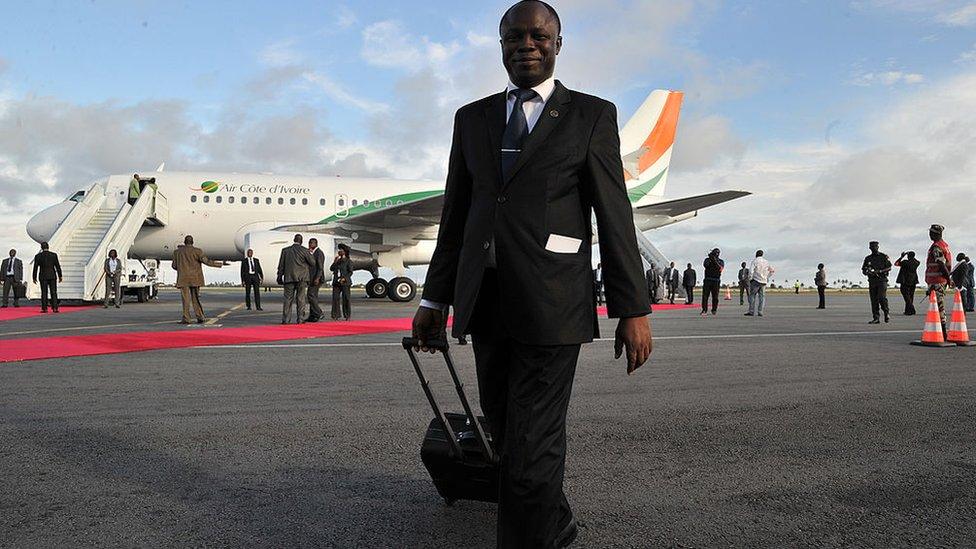
The introduction of regional airlines like Air Cote D'Ivoire has not fully addressed the challenges
"This has a concomitant effect - the high costs of goods and services," lamented a middle-aged retailer from Freetown who buys her goods in Guinea for sale in Bo, southern Sierra Leone.
Omodele Jones, a businessman based in The Gambia, told me he had to change his ticket to fly from Banjul via Brussels to Nairobi because his airline had cancelled its flight to Dakar, where he was initially scheduled to connect to the Kenyan capital.
"It would have cost me a lot of time - which is a lot of money - to have waited another two days at least to fly to Nairobi via Dakar," Omodele Jones told me.

Why the African aviation business has not taken off: Nancy Kacungira, BBC Africa
Several African countries established national airlines after independence, mainly focusing on flights to destinations outside the continent.
Many of these carriers were propped up financially and protected by regulation, stifling competition and leaving domestic and regional routes undeveloped for a long time.
Safety has also been an issue because of comparatively high accident rates, and regulators outside Africa have imposed heavy restrictions.
Even some African airlines with good safety records are blocked from flying to the European Union (EU) airports because of a lack of confidence in African safety regulators.
Another factor is that some African countries have still not opened up their skies to each other - allowed other countries' carries to use their airports - yet they have opened up to carriers from other continents.
As a result, it is often cheaper to fly from an African city via London, Amsterdam, or Dubai and back to a neighbouring African city than to travel direct.
Non-African airlines currently fly about 80% of intercontinental traffic to and from Africa.
The Single African Air Transport Market (SAATM), a policy of the African Union, is due to be introduced this year.
Implementing the SAATM, which is similar to the EU's single aviation market, would go a long way towards making African air travel more competitive by reducing protectionist policies.
Nancy Kacungira is presenting the BBC Africa Debate: What will fix Africa's air transport? Listen on the BBC World Service, 1900 GMT on 26 May and afterwards on demand.

Half a century after independence, many African countries still have better transport links with their former colonial powers than their neighbours.
There are several flights a day from former British colony The Gambia to London, but very few to neighbouring Senegal.
Senegal's capital, Dakar, is of course well served with flights to its former colonial master, France.
One reason for the lack of flights between major West African cities is the collapse of regional airlines such as Ghana Airways, Air Senegal and many in Nigeria.
Some West African states have tried to address this by setting up a new airline, ASKY, based in the Togolese capital, Lome where a massive airport expansion is underway.
It was established in 2008 but does not yet connect all West African countries.
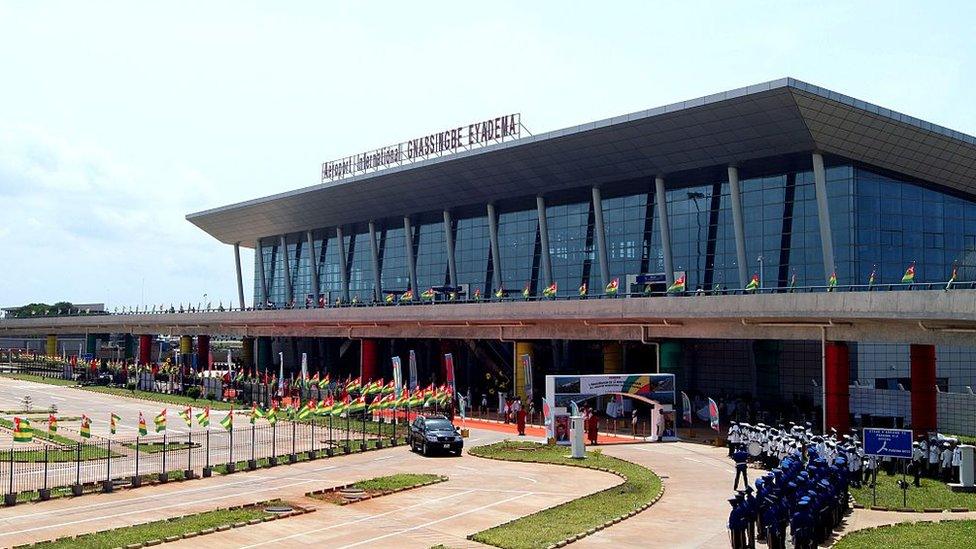
ASKY airline operates from its hub in Gnassinge Eyadema International airport in Lome,
One expert in the aviation industry says the passenger flow in West Africa is "pretty low", so it does not make business sense to fly some routes.
The man, who did not want to be named, says with "a more sensible and business-friendly tax regime" the situation would improve.
The Vice-President of KLM Africa, Frank Legre, told journalists in Freetown recently that the cost of a plan ticket to London largely consisted of taxes:
"Let me explain to you about our ticket to London. The ticket cost $825 and our own actual price without tax is $350, which shows that over $500 tax has been levied on the ticket."
While it is true that many West Africans cannot afford to fly, the middle-class is increasing and if prices were lower, more people would develop the habit of flying and so it might become profitable for airlines to link West African cities before too long.
In the meantime, the idea of free movement of goods and services as envisioned by the founding heads of state of the regional body Ecowas will remain a pipe-dream.
- Published11 February 2017
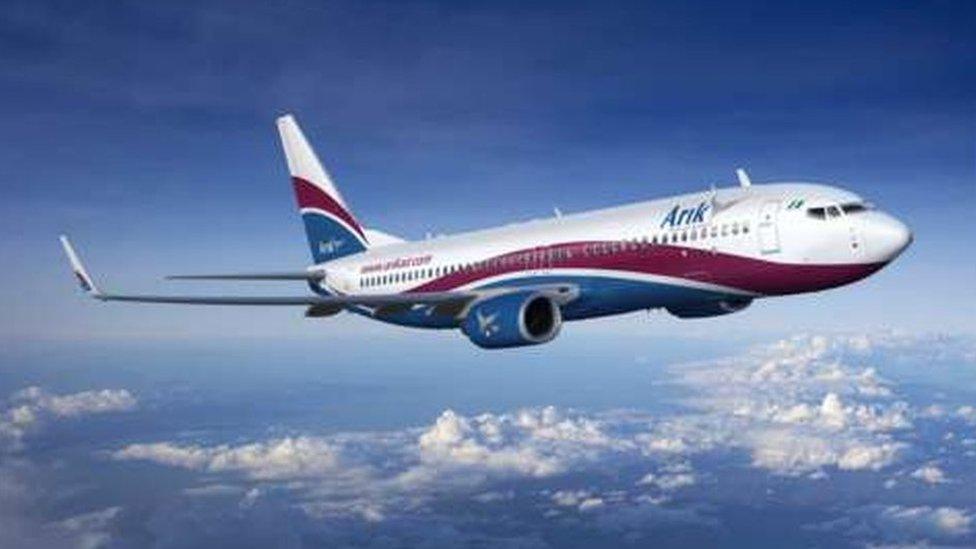
- Published30 July 2015
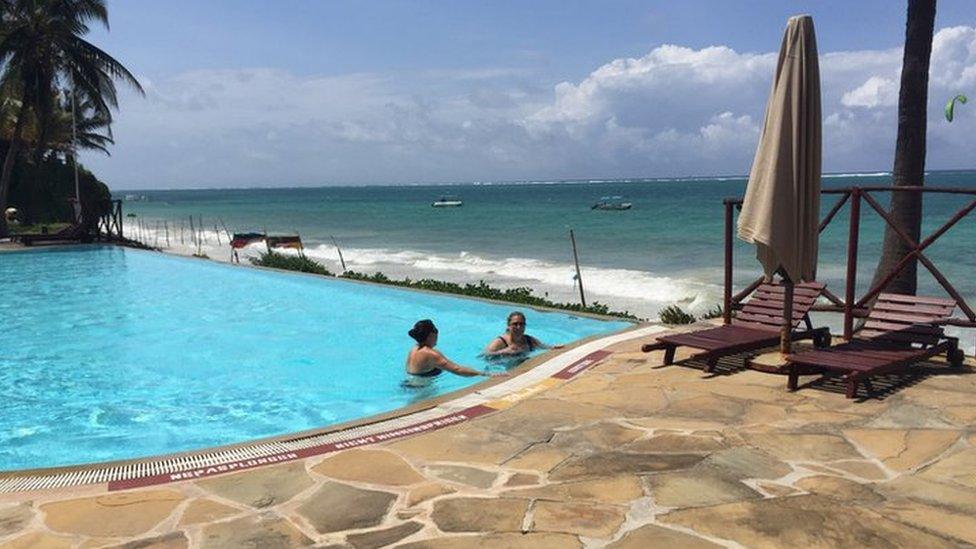
- Published5 March 2014
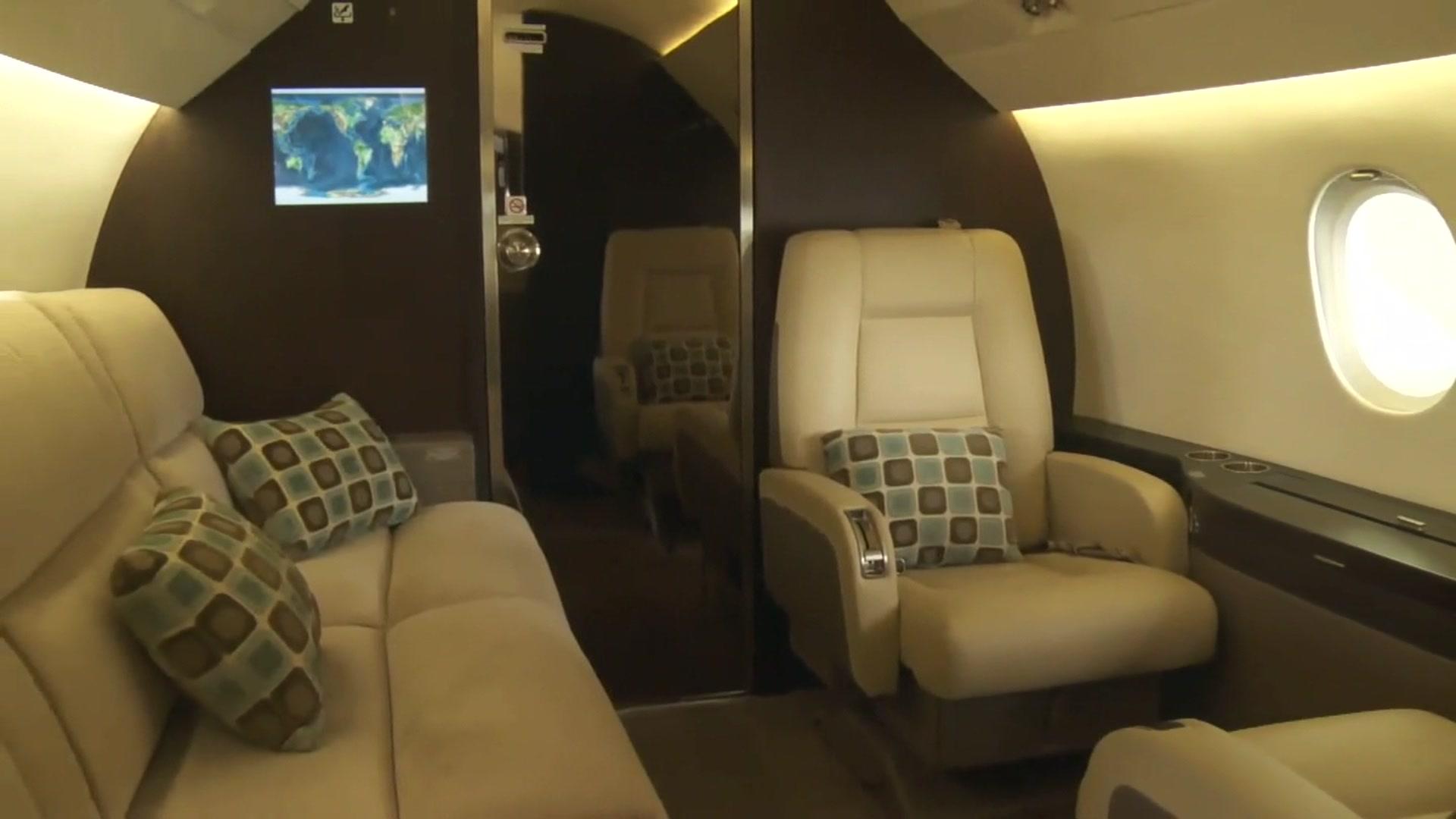
- Published17 August 2012
